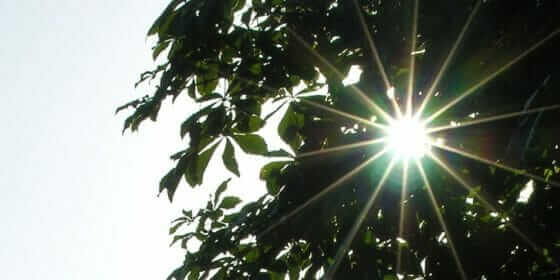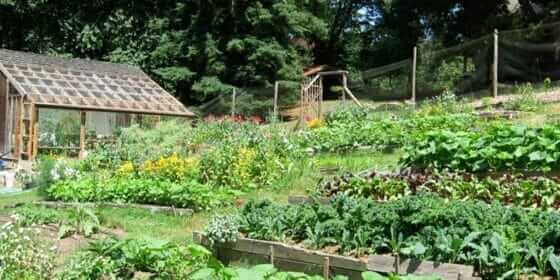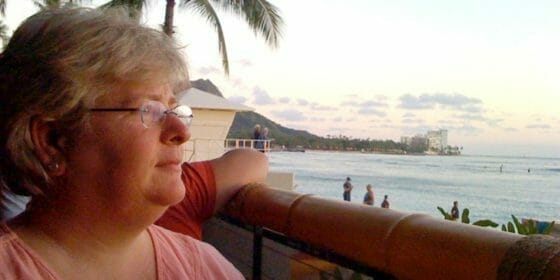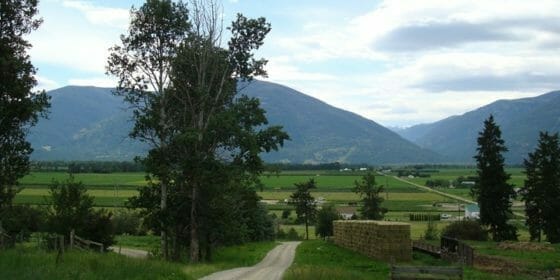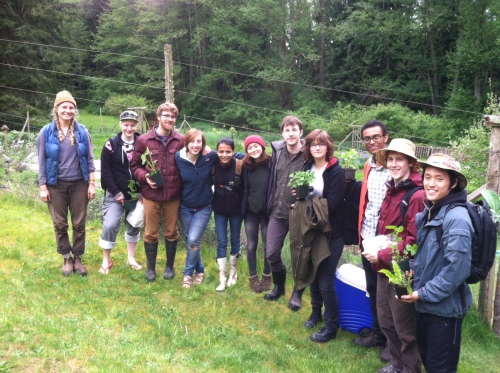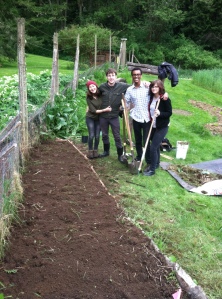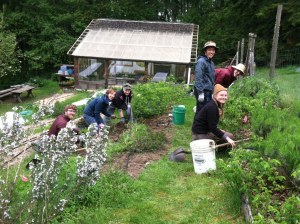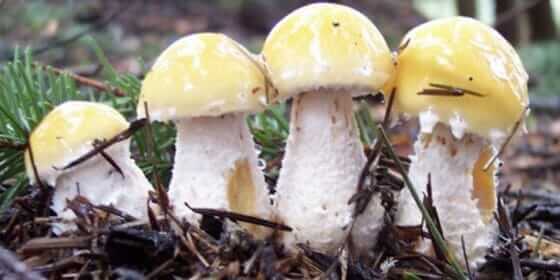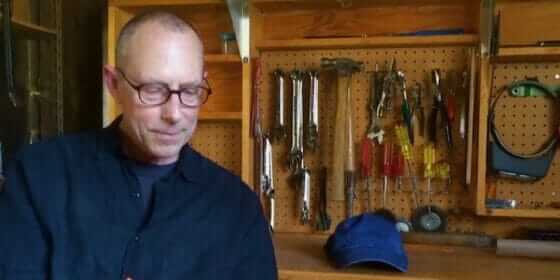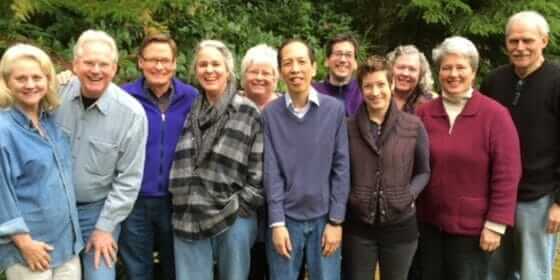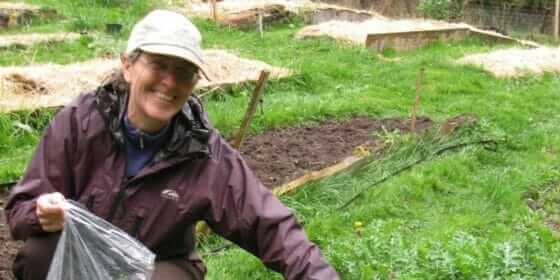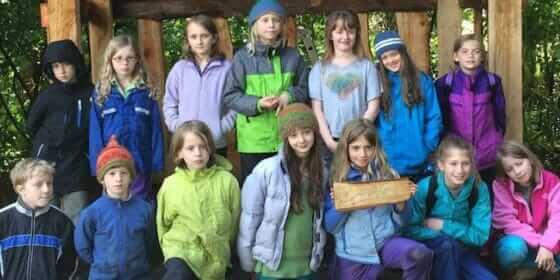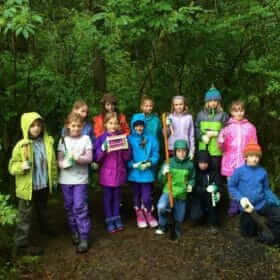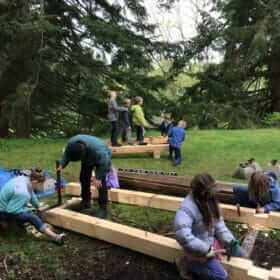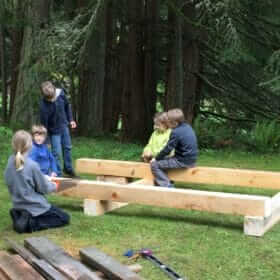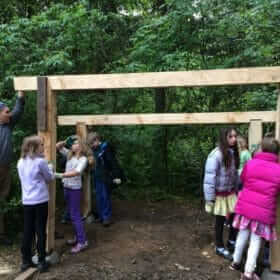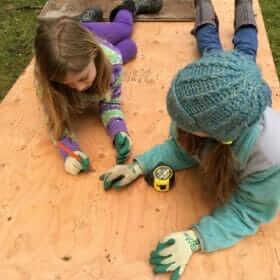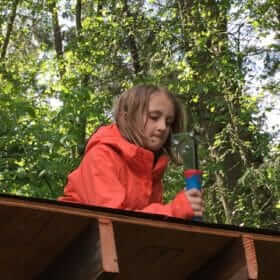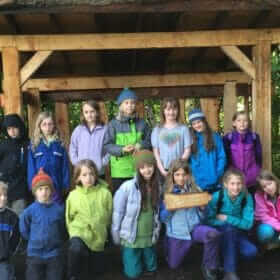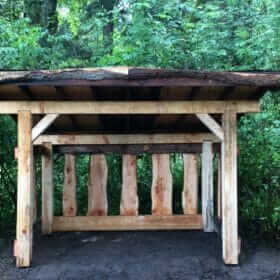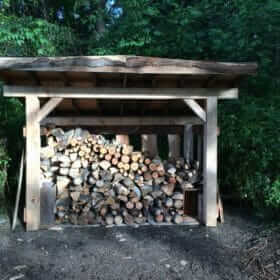Mark Yeoell is many things to many people. At work, he’s an organizational consultant, and founder and Chief Strategy Officer of Global Integrity Leadership Group. At home, he’s a husband, a father, a poet, and an RC model airplane enthusiast. At the Whidbey Institute, he’s a program leader, trusted advisor, and former board member. He’s also a dear friend, on whom we rely for continuing organizational development wisdom.
Mark describes himself as a pragmatic utopian, “keeping my eyes on the stars and my feet on the ground.” He sees the power in starting where people are— while looking for and believing in the best in people, then finding ways to help them manifest that in down-to-earth and grounded ways.
Mark led an international childhood, living in Malaysia, Nigeria, Morocco, and England with parents to whom he credits for some of his current professional depth. “I [learned from] a combination of their own spirit of inquiry about the nature of life and their determination that I not be subjected to any particular religious or spiritual persuasion until I was old enough to decide for myself.” He elaborated on the clear distinction between “subjection” and “exposure,” noting that as a child he was able to learn from the traditions of Catholicism, Taoism, Confucianism, Judaism, Islam, Christianity, and western psychology, guided by parents who lived among and embraced teachings from many cultures. He said, “from that, I suppose I took the idea that everyone has incredible potential and you have to start where they are. My idea of their journey is not any better than their own.”
The wisdom of Mark’s leadership coaching lies in relating to the leader, first and foremost, as a person. “You’re a human being first and a leader second,” he said, “and who you are as a human informs your leadership. There are times when life’s calling for something authentic, real, and vulnerable—when we can, in Ghandi’s words, ‘be the difference that makes the difference.’” Mark’s work, he said, is to help people find access to the inner courage, ability, and tools to make that step.
In service to developing these capacities in individual leaders, Mark facilitates the Leadership Development Intensive—a retreat he’s offered for about 20 years. He’ll be holding the retreat at the Institute this autumn, as he has for many years.
For Institute Associate Director Heather Johnson, the LDI was truly a transformational leadership retreat. “Sometimes a person can view something countless times, always seeing the same thing—then with the next glance, view it entirely differently,” she said. “This is what I experienced in the LDI, with myself and my leadership.” She went on to tell me of her gratitude to Mark for that shift in understanding, which accumulated into what she called, “a landslide of impact.”
Heather’s experience is not alone—Mark said the LDI is popular among leaders from the realms of business, medicine, civil service, government, youth leadership, and ministry. He describes the retreat as, “a profound exploration into the nature of one’s self as person and one’s self as leader. It’s about self-mastery, self-awareness, and leading from the values that are most core to us and most available to us when we are not in our mode of self-protection or automaticity.“ He speaks of a Strategic Survival Personality we’ve each assumed, according to our social conditioning—a way of being in the world which is one step away from who we are at the core. In bringing forward our true, authentic selves, according to his experience, we have an incredible opportunity: to choose love over fear.
“There’s one dogma I have,” Mark said. “It’s better to love than not to love, and kindness is love’s highest expression.” In practice, he explained, kindness can sometimes take the form of hard conversations and difficult choices—choices not made in protection of our own fears, but in service to another’s needs. “I think one of the least spoken words in the lexicon of leadership is courage,’ he said, “but my experience is that it really comes down again, and again, and again, to the opportunity to choose courage over fear.”
As our conversation drew to a close, Mark pointed out that his career is built largely on helping people hear one another more fully. “The core of what I do is I help people listen to themselves and each other better when I’m in the room than when I’m not. 90% of leadership—90% of life!—is communication, with oneself and with others. That’s a pretty important thing to help people do.”
To learn more about Mark’s work, visit Leadership Development Intensive.
August 18, 2014
Those among you who have visited the Westgarden this year will know it as a vibrant, thriving, bountiful space. The beautiful weather we’ve been having has certainly helped, as has a team of tireless and dedicated volunteers. Another significant ingredient in our flourishing garden is water, and after a lengthy process researching and rehabbing a historic irrigation system and adding new piping and fixtures, watering the garden has become much, much easier!

